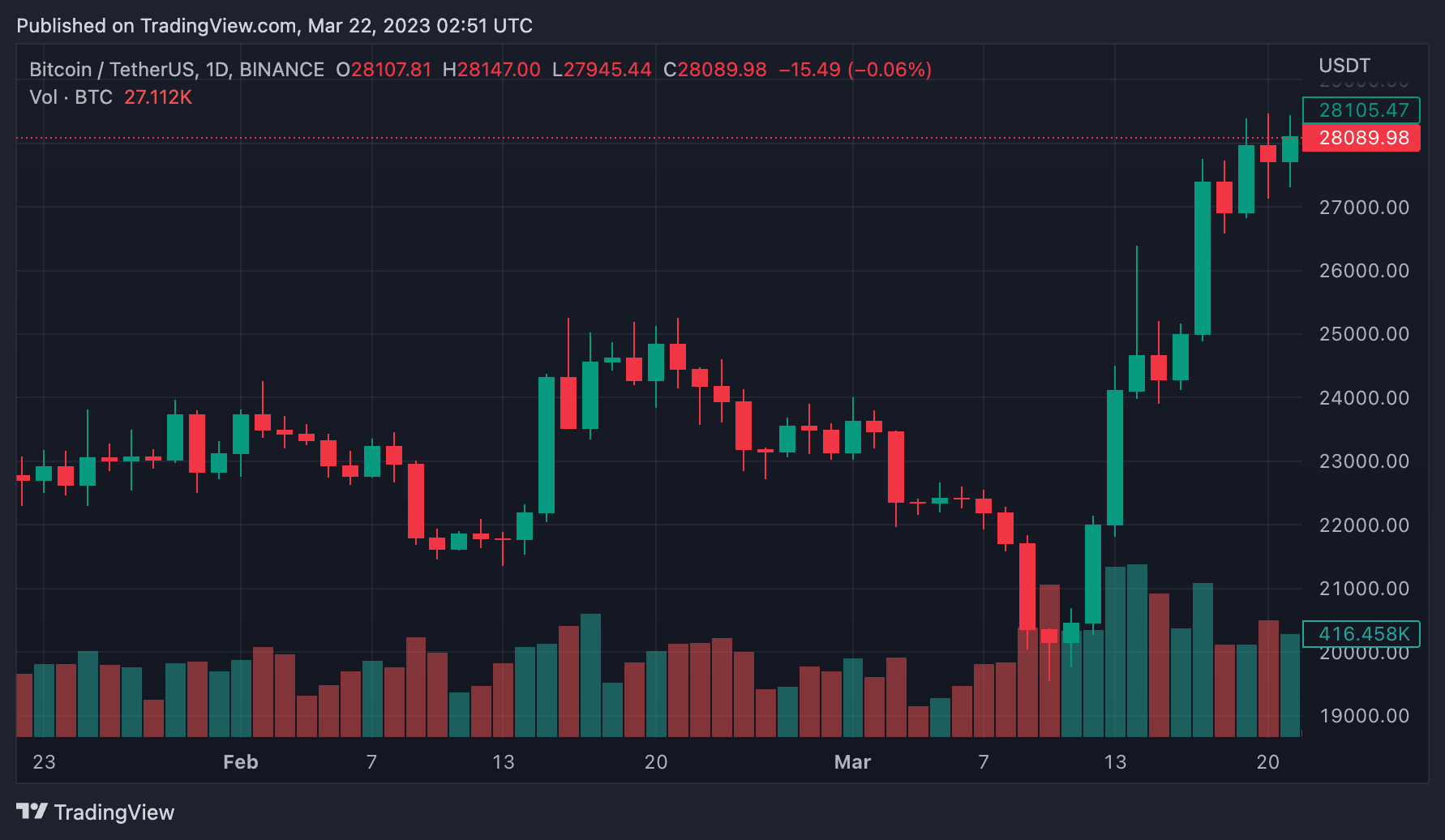Most crypto firms have been unable to use traditional banking services due to years of regulatory scrutiny. That even as bitcoin reached its highest level in nine months, adding to the cryptocurrency's finest week in four years, investors fled the banking sector.
As hopes grew that central banks would reduce the pace of interest rate rises, the largest crypto token soared.
Global financial turmoil came to a head last week when UBS Group bought competitor Credit Suisse Group AG over the weekend. As a result, bitcoin jumped 26% last week, its biggest weekly gain since April 2019. In the last 10 days, bitcoin has gone up about 40%, currently standing just about the US$28,000 mark.

Related: A Wild Week in Finance: What Happened, And Where Do We Go From Here?
On Monday, when UBS finished buying Credit Suisse with help from the government, traditional assets like banking stocks and bonds fell. This was done to try to rebuild trust in a sector that had been hurt.
In response to growing worries about the health of the financial system, the top central banks in the world took steps on Sunday to increase the flow of cash around the world.
Not since the height of the COVID-19 epidemic has there been such a coordinated international reaction.








